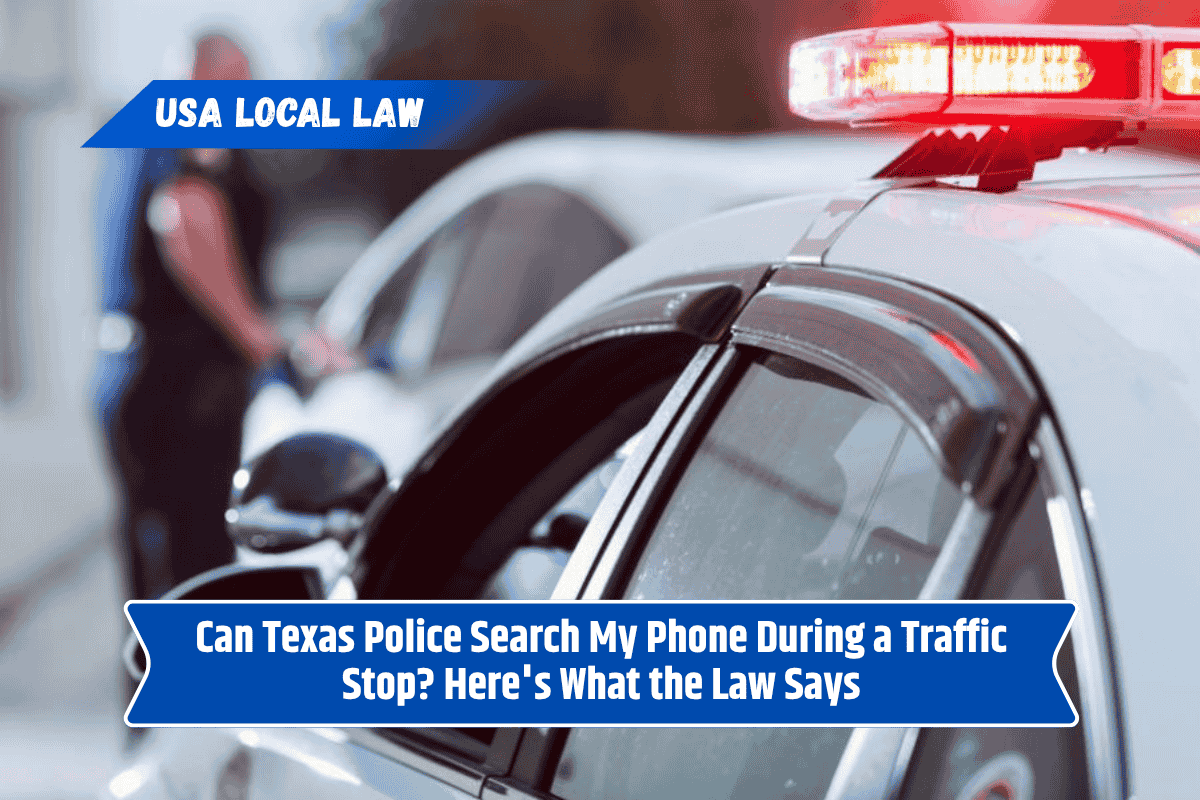When you’re pulled over in Texas, it’s natural to feel nervous, especially if a police officer asks to see your phone. Many people wonder if the police have the right to search their phone during a simple traffic stop.
To understand your rights better, it’s important to know what the law actually says about phone searches and when an officer can or cannot check your phone in Texas.
Is Your Phone Protected by the Law?
Yes, your phone is protected by the U.S. Constitution under the Fourth Amendment, which guards against “unreasonable searches and seizures.” This means police usually need a warrant to search your phone.
In 2014, the U.S. Supreme Court clearly stated in Riley v. California that officers must have a search warrant before they can look through your phone—even during an arrest, let alone a traffic stop.
Can Police Search Your Phone Without a Warrant in Texas?
Usually, no. Texas law follows the same basic rule as federal law. Police cannot search your phone during a traffic stop unless:
You give them clear permission
They have a valid search warrant
There’s an urgent situation (like preventing a serious crime or immediate danger)
So, unless one of these exceptions applies, your phone is off-limits.
What Happens If You Give Permission?
If a police officer asks to look at your phone and you say “yes,” you’re legally allowing them to do it. That’s called consent, and once you give it, they don’t need a warrant anymore. That’s why it’s very important to know your rights. You always have the right to politely say no.
Saying no does not mean you’re hiding something—it just means you’re protecting your privacy.
What About If You’re Arrested?
Even if you’re arrested during a traffic stop, police still need a warrant to search your phone. Your phone is treated differently from your car or pockets. The court sees your phone as holding very personal and private information.
So, even during an arrest, the officer cannot scroll through your messages or apps unless they have a search warrant signed by a judge.
Can Police Make You Unlock Your Phone?
This is where things get tricky. If your phone is locked with a passcode, you usually don’t have to give it up. But if it’s locked with face recognition or fingerprint, the rules can be different. Some courts say police can make you use your fingerprint or face to unlock your phone. Other courts say that’s still protected.
So far, Texas courts haven’t made a clear rule about this, so it depends on the case. Still, many legal experts recommend using a passcode, as it offers stronger protection under the law.
How to Handle It if It Happens to You
If an officer asks to see your phone during a stop, you can say:
“I do not consent to a search of my phone.”
This is a polite and legal way to protect your rights. You should stay calm, respectful, and never try to hide or destroy your phone, which could get you into legal trouble.
In Texas, your phone is generally safe from police searches during a traffic stop unless you give permission or there’s a serious emergency. Even if you’re arrested, officers still need a warrant to search your device.
Knowing your rights helps you stay calm and confident if you’re ever pulled over. Just remember: you can politely refuse, and it’s your right to do so.
